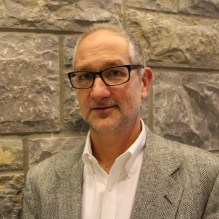The End of Expertise: And Why That Is A Giant Problem for the Anthropocene
March 2, 2017

By: Bruce Hull
Two game-changing coattails that Trump road to the presidency are fake news and distrusted expertise. They also usher into mainstream governance an end to rationality, modernity, enlightened self-interest, and related strategies and hopes that we can think our way out of the challenges we face. These are deeply troubling trends for those of us concerned with the highly technical, enormously complex, wickedly interdependent sustainability challenges of meeting the needs of 2-5 billion new middle class consumers while sustaining a climate and habitat that nurtures human civilization.
Fake news gets traction because we are hard-wired to have a confirmation bias. Because of it, people search for and remember facts that confirm their initial beliefs and ignore or forget unsupportive evidence. The explosion of information made accessible by the web makes it easy for people to find the support they crave. The slow, difficult, testable, and transparent scientific method is an institution humans invented to help us overcome the confirmation bias.
If confirmation bias wasn’t enough of a threat to experts, expertise, and rationality, then its close cousin, identity protecting reasoning (IPR), is down right frightening. IPR has the power to burn up democracy: and Trump is pouring fuel on the fire. With IPR, subsets of facts, ideas, and memes become associated with one’s identity. As a result, contrary facts, ideas, and memes are not just rejected (as the confirmation bias would have us do) but perceived as threats to be fought against, triggering a feedback loop that reinforces ones original beliefs and further polarizes opinions (Kahan et al 2012). Climate change and gun control provide examples. Deniers immediately see any invocation of climate science as a threat to their identity, politics, culture, and heritage. Facts, science, and logic are irrelevant to the resulting discussion. The denier’s internal dialog and framing switches to defending one’s self and one’s people. Statistics, computer models, core samples, and historic trends fall on deaf ears that instead hear blasphemy, disrespect, and arrogance. Gun control arguments would be similar. Facts about accidental deaths or evidence of decreased school safety don’t matter when one only hears Bill of Rights, freedom, and rugged individualism. To invoke climate or guns in a conversation immediately reframes the discussion and triggers the defense of identity and politics. Most people rather doubt science and experts than question their identity or politics.
The growing distrust of expertise has another troubling cause. As complexity and uncertainty of the world increase, most people struggle understanding their connection to it. How, for example, are one’s declining wages and health and identity and children’s prospects connected to distant and opaque global systems? Moreover, what can one do about it? Simple answers are seductive, especially if they reinforce stereotypes and blame someone else. Reality is more complicated and difficult to comprehend. It requires years of experience, networking, study, travel, and learning by doing.
Information of all types has never been easier to find. But the high quality, peer-reviewed, carefully produced arguments and facts tend to be less accessible, often disguised by jargon and hidden behind professional or disciplinary gates. And even if the information generated by experts is found, it is but one click away from half-baked, last minute, advocacy-driven drivel. People inexperienced with a topic have no way to know the difference between science and drivel. It is understandably that they instead accept the most frequently found, oft repeated arguments that just so happen to confirm their initial beliefs and assumptions.
The impacts of confirmation bias, identity protecting reasoning, and information access are combining to undermine rationality, expertise, and ultimately threaten democracy. “Unless some sort of trust [of expertise] can be restored, public discourse will be polluted [by confirmation bias, IPR, and nefarious actors]…and in such an environment, anything and everything becomes possible, including the end of democracy…” (Nichols, p73) It certainly will make sustaining development more challenging.
References
- Nichols, T. 2017. How America lost faith in expertise: And why that is a giant problem. Foreign Affairs 96:60-73.
- Alternative Facts Presidency: watch out. Blog, http://www.culturalcognition.net/blog/2017/2/20/fake-news-enh-alternative-facts-presidency-watch-out-talk-su.html


